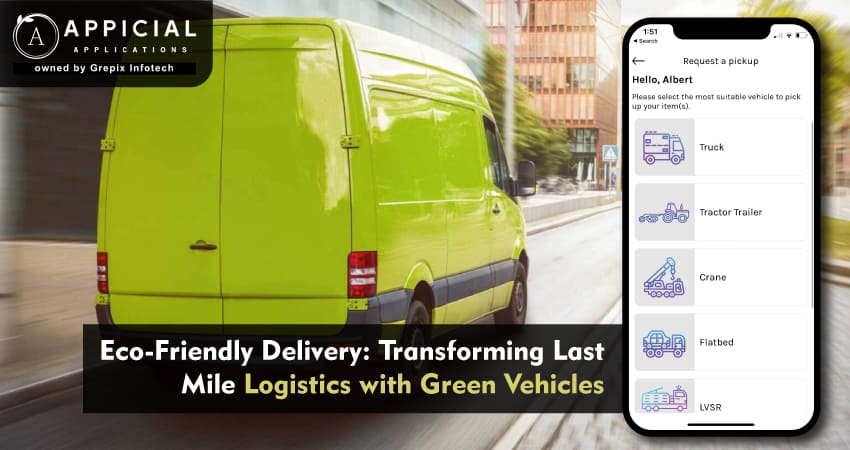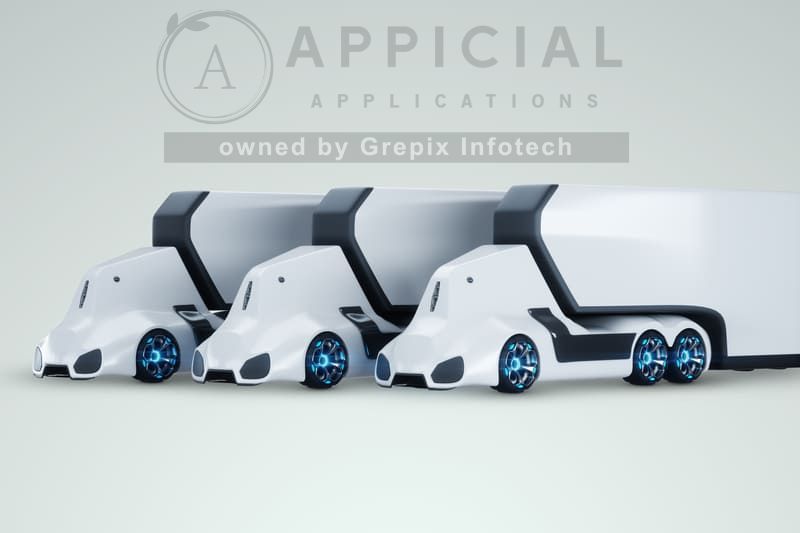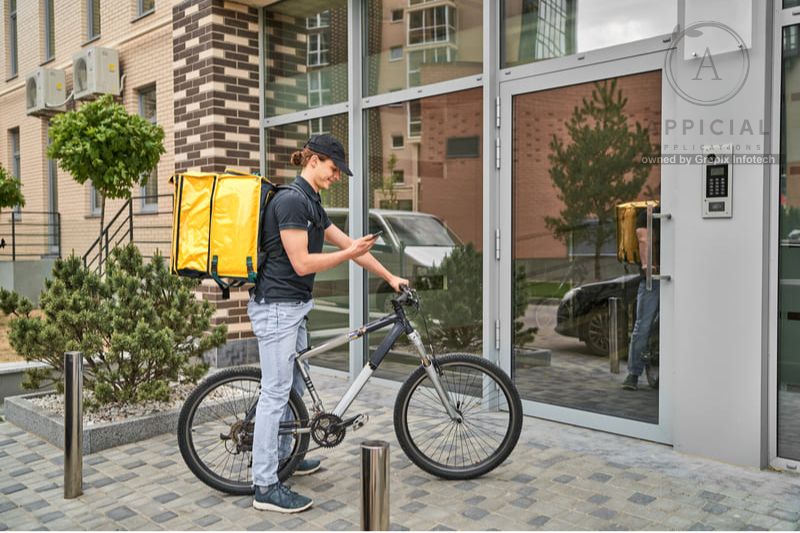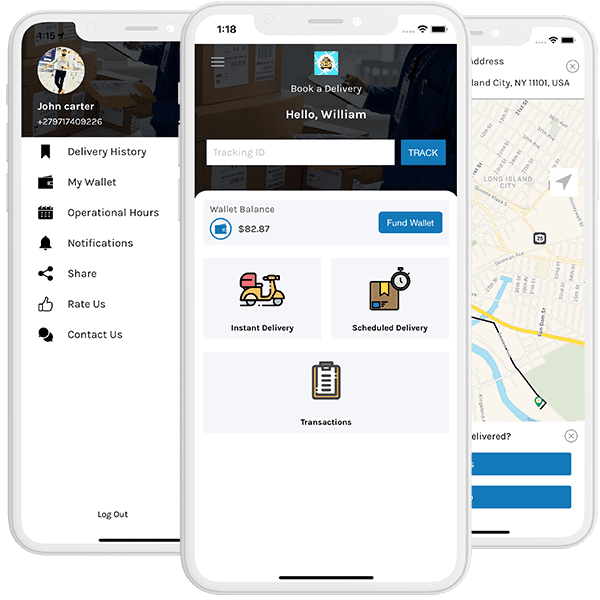
Eco-Friendly Delivery: Transforming Last Mile Logistics with Green Vehicles
It begins quietly on a crisp morning: an electric van hums past dawn-lit streets, delivering groceries to a young mother’s doorstep before her child wakes up. Across the city, a courier on a sturdy e-bike zips through narrow lanes, avoiding traffic jams while delivering a birthday gift just in time. Above the skyline, drones hover, lowering small packages safely to porches without a single puff of smoke.
This is not the future; it is the reality quietly taking shape in last-mile delivery.
As global concerns over climate change deepen, and city air quality plummets under the weight of fossil-fueled traffic, the logistics industry is undergoing a radical transformation. The “last mile”- the crucial, final stretch of delivery from a hub to a customer’s doorstep has historically been the most polluting, expensive, and inefficient phase of the supply chain. Yet, it is also the most visible to customers, and the moment brands are remembered or forgotten.
Now, eco-friendly vehicles, electric vans, cargo bikes, e-bikes, and drones are rewriting this chapter, turning the last mile into a green mile.
This shift is not just about emissions; it’s about reshaping urban environments, customer experiences, and business models to align with the sustainability that modern consumers demand. Let’s explore how green vehicles are transforming last-mile logistics, the advantages they offer, the challenges they face, and why adopting them now is not optional but essential for logistics companies aiming to stay relevant in a rapidly evolving market.
The logistics industry is undergoing a significant transformation, especially in last-mile delivery, driven by the growing concern for environmental impacts and technological advancements. Last-mile logistics, crucial for customer satisfaction, has traditionally been a major contributor to greenhouse gas emissions due to its high cost and energy demands. However, the adoption of eco-friendly vehicles such as electric vans, cargo bicycles, and drones is setting a new standard. These vehicles not only reduce emissions but also lower operating costs and improve brand image by aligning with consumer preferences for sustainability. Despite challenges like higher initial costs and infrastructural needs, the shift towards sustainable delivery solutions is becoming increasingly viable and necessary, propelled by changing consumer behaviors, stricter regulatory environments, and technological innovations in vehicle efficiency and urban infrastructure.
The Importance of Last Mile Logistics
The significance of last-mile logistics cannot be overstated. It stands as the most critical phase of the supply chain, directly impacting consumer satisfaction and retention. Not only does it represent the final touchpoint between businesses and consumers, but it also accounts for more than half of the total shipping costs, underscoring its economic weight within the logistics sector. Additionally, this segment is a major contributor to environmental concerns, as traditional delivery methods are notably energy-intensive and result in substantial greenhouse gas emissions.
The growing consumer demand for quicker delivery services has historically exacerbated these environmental impacts, with an increase in vehicle emissions and broader ecological degradation. However, a transformative shift is underway with the integration of green vehicles into last-mile operations. The adoption of electric vans, e-bikes, and other sustainable transportation methods promises a substantial decrease in carbon emissions and energy usage. This move towards eco-friendly vehicles not only addresses the urgent need for environmental stewardship but also aligns with evolving consumer expectations, setting a new standard for efficiency and sustainability in last-mile deliveries.
Also Read: Fast Delivery App Development Solution: Last Minute | Same Day | One Day Delivery
The Rise of Eco-Friendly Vehicles
Eco-friendly vehicles are transforming last-mile delivery, with electric vehicles (EVs) leading the charge. Their operational efficiency and zero-emission output at the point of use are pivotal in minimizing the environmental footprint of delivery services. Electric vans, bicycles, and drones not only adhere to sustainability goals but also offer economic benefits through reduced energy costs. As these technologies evolve, they are becoming increasingly integral to logistics, meeting both consumer demand for faster, more eco-conscious delivery options and regulatory standards aimed at reducing urban air pollution. This shift marks a significant step towards more sustainable urban environments.

1 Electric Vans and Trucks
Major corporations such as Amazon and UPS are heavily investing in electric delivery vans, underscoring a significant shift towards sustainable logistics. Amazon, notably, has pledged to deploy 100,000 electric vans by 2030. These vehicles are particularly suited for urban deliveries, where their electric propulsion systems can be most efficient due to the frequent but short trips common in city environments. This strategic shift not only supports environmental goals but also optimizes operational efficiencies, setting a new standard in the industry for eco-friendly delivery solutions.

2 Cargo Bicycles and E-bikes
Cargo bicycles and e-bikes represent even greener alternatives to traditional delivery methods, particularly effective in dense urban areas. These vehicles emit no pollutants and navigate traffic more efficiently than motorized vehicles, significantly reducing delivery times. Their low maintenance requirements further enhance their appeal as sustainable options. In cities with robust bicycle infrastructure, cargo bikes and e-bikes integrate seamlessly into the urban transport ecosystem, providing a swift, eco-friendly solution for last-mile delivery. This adaptability not only supports environmental goals but also improves urban mobility, making them an increasingly popular choice for forward-thinking logistics operations.

3 Drones
Drone delivery is emerging as a groundbreaking solution in the logistics industry, offering a potential leap in delivery efficiency and environmental sustainability. By flying directly to consumers' locations, drones bypass the complexities of road traffic, significantly curtailing delivery times and emissions. This method harnesses the advantage of taking the shortest possible route, minimizing the energy consumption typical of ground-based delivery vehicles. As this technology progresses, it could reshape how goods are transported in urban and rural settings promising a faster, cleaner delivery process that aligns with increasing environmental and consumer demands.
Advantages of Green Vehicles in Last Mile Delivery
1 Reduced Carbon Emissions
The primary benefit of using eco-friendly vehicles for last-mile delivery is the significant reduction in carbon emissions. This change is crucial as the transportation sector is one of the largest contributors to global greenhouse gas emissions.2 Cost Efficiency
Electric vehicles have lower operating costs compared to traditional internal combustion engine vehicles. They require less maintenance due to fewer moving parts and lower energy costs, particularly with the potential integration of renewable energy sources.
3 Enhanced Brand Image
Utilizing green vehicles enhances a company's brand image. Consumers are increasingly making purchasing decisions based on environmental impact, and companies that invest in sustainable practices are likely to benefit from increased customer loyalty and positive brand association.
4 Regulatory Compliance
Many urban areas are introducing low-emission zones and strict environmental regulations. Companies using eco-friendly vehicles are better positioned to comply with these regulations without disrupting their operations.

Challenges and Considerations
While the benefits of eco-friendly last-mile delivery are clear and compelling, the path to implementing green fleets is not without hurdles. Many logistics companies, from global giants to local couriers, encounter practical challenges when transitioning to sustainable delivery models.
Higher Upfront Costs for Electric Vehicles and Cargo Bikes
Electric delivery vans, trucks, and specialized cargo bikes often carry a higher initial purchase price than their traditional diesel or petrol counterparts. For small and medium logistics companies operating on thin margins, this upfront investment can be daunting, even if operational savings are clear in the long term. For example, while an electric van saves on fuel and maintenance, the higher purchase price can slow adoption without access to financing, subsidies, or leasing models that reduce capital strain.
Limited Charging Infrastructure
A reliable charging network is crucial for the seamless operation of electric delivery fleets. In many urban centers, charging stations are still limited and often occupied, while suburban and rural areas face even greater infrastructure gaps. This limitation complicates route planning and can lead to range anxiety among drivers, risking delays in delivery schedules. Companies looking to deploy electric fleets at scale often need to invest in private charging facilities, adding to initial transition costs.
Battery Limitations and Route Planning Complexity
Current battery technology, while rapidly improving, still imposes range limitations on electric vehicles. Logistics teams must carefully design routes to accommodate battery range while balancing efficiency and customer delivery expectations. For electric cargo bikes, frequent recharging may be necessary on high-volume delivery days, requiring planning for charging breaks or battery swaps. This complexity demands advanced fleet management and routing software to maximize efficiency without disrupting delivery commitments.
Regulatory Hurdles for Drones
Drone delivery, while promising for zero-emission, rapid last-mile logistics, faces significant regulatory challenges:
- Airspace restrictions and no-fly zones in urban areas.
- Safety and privacy concerns from communities.
- Requirements for pilot certifications and operational approvals.
These hurdles vary across countries and even cities, slowing widespread adoption despite successful pilot programs by companies like Zipline and Wing. Overcoming these challenges requires collaboration with regulators, ongoing community engagement, and investment in compliant drone technologies.
Dependence on Urban Infrastructure for E-Bikes
Electric bikes and cargo bikes thrive in cities with well-developed cycling infrastructure, including dedicated bike lanes and safe storage facilities. However, in cities lacking these infrastructures, e-bike couriers face safety risks, traffic congestion, and delivery inefficiencies. Poorly maintained roads and adverse weather conditions can further limit the practicality of cargo bike deliveries, requiring businesses to maintain hybrid fleets to navigate these constraints.
The Road Ahead
The future of last-mile delivery is undeniably leaning towards sustainability, propelled by technological innovations and evolving urban infrastructures. Advances in electric vehicle technology such as longer-lasting batteries and more efficient motors are enhancing the viability of eco-friendly vehicles for daily operations. Cities are adapting by expanding charging networks and redesigning streets to accommodate bicycles and electric scooters, making green delivery methods more practical. As consumer preferences shift towards environmentally conscious choices, companies recognize the competitive advantage of adopting sustainable practices. Regulatory pressures are also mounting, with governments implementing stricter emissions standards and offering incentives for green initiatives. This combination of consumer demand and regulatory frameworks is motivating businesses to invest further in green logistics solutions. The convergence of these factors signals a transformative shift in last-mile delivery, where sustainability is not just an option but a necessity for future growth and competitiveness.
Conclusion
The shift towards eco-friendly vehicles in last-mile logistics represents not just an environmental imperative but also a significant opportunity for innovation and growth within the industry. As companies navigate the challenges of transitioning to greener delivery methods, the role of technological solutions becomes increasingly crucial. This is where Appicial Applications steps in as a key player. We offers cutting-edge mobile app development services that enable businesses to optimize their logistics operations, seamlessly integrating eco-friendly vehicles into their delivery fleets. By leveraging Appicial's advanced solutions, companies can not only enhance efficiency and reduce operational costs but also meet regulatory requirements and cater to the growing consumer demand for sustainable practices. In partnership with innovators like Appicial Applications, the logistics industry is well-positioned to embrace a more sustainable and efficient future, transforming the last mile into a green mile for generations to come.
Looking to launch your own logistics venture like Uber for Logistics? Try our innovative Logistics App, designed to make starting your logistics delivery business simple and efficient. Get started today with the easiest solution for your logistics needs.




